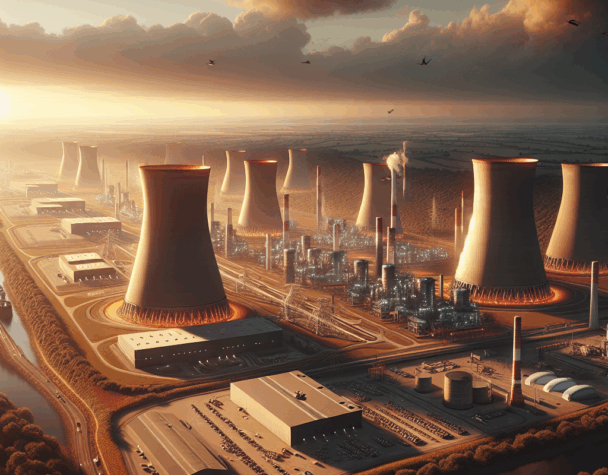
EDF's $1.5B Investment in UK's Sizewell C Nuclear Project
Wed, July 09, 2025In a significant move within the energy sector, French utility giant EDF has announced a substantial investment of approximately $1.5 billion (1.1 billion pounds) in the United Kingdom’s Sizewell C nuclear power plant. This investment increases EDF’s stake in the project to 12.5%, underscoring the company’s commitment to nuclear energy and the UK’s pursuit of net-zero emissions by 2050.
EDF’s Strategic Investment
The announcement coincided with French President Emmanuel Macron’s state visit to Britain, marking the first by a European leader since Brexit. The Sizewell C plant, once operational, is expected to supply electricity to about 6 million homes, playing a pivotal role in the UK’s energy strategy. The British government has pledged 17.8 billion pounds to the project and is actively seeking additional investors. Notably, U.S.-listed investment fund Brookfield plans to acquire over a 20% stake, while Centrica is considering participation. EDF previously held a 16.2% stake at the end of 2024. The government has emphasized continued oversight and is in sensitive discussions with other potential investors. Originally planned with China General Nuclear Power Group, the UK government removed the Chinese stake in 2022 over security issues. Sizewell C will be the second new nuclear facility in two decades after Hinkley Point C, which is now anticipated to begin operations in 2029 following various delays. EDF estimates Sizewell C to be around 20% less expensive than Hinkley Point C.
Germany’s Corporate Initiative to Boost Investor Confidence
In a parallel development, Germany’s largest corporations, including Siemens, Deutsche Bank, and FGS Global, are considering a joint initiative to restore investor confidence in the nation’s economy. Representing over 30 major companies, they plan to commit approximately €300 billion ($352 billion) in investments in Germany through 2028, largely comprising pre-existing commitments. The initiative aims to mobilize additional private capital as well, with international investors like Advent and KKR expected to participate. A key meeting is scheduled for July 21 with Chancellor Friedrich Merz and Finance Minister Lars Klingbeil to discuss formalizing the plan. Potential supporting firms include RWE, Rheinmetall, SAP, and Volkswagen.
This move aligns with the new government’s broader strategy to revitalize the economy, which includes a €46 billion tax relief package and increased public spending focused on defense and infrastructure. The government, led by Merz, seeks to improve strained ties with the business sector and drive economic growth to reduce dependency on the U.S. Despite improved business morale and investor sentiment, Germany’s economy remains sluggish and risks a third consecutive year of contraction. Critics argue that structural reforms are essential for any significant economic recovery beyond fiscal stimulus measures.
U.S. Investors’ Response to Upcoming Tariff Deadlines
As U.S. President Donald Trump’s July 9 deadline for imposing trade tariffs approaches, global investors remain largely unfazed. Despite Trump’s announcement of tariff letters being sent to 12 countries and hints at rates as high as 70% beginning August 1, markets remain sanguine. Investors view the deadlines as flexible and doubt Trump will finalize agreements with all trading partners soon. While the U.S. has reached limited deals with Britain and Vietnam, negotiations with India, Japan, and the EU have stalled. Despite initial market volatility following Trump’s April 2 “Liberation Day” tariffs, global stocks have since rallied strongly. Investors attribute the muted concern to market liquidity and focus on recent legislative developments, including Trump’s new tax and spending package, which could add over $3 trillion to national debt. Stock markets celebrated the passage, but bond markets and the dollar have shown concern. The dollar index is down 11% year-to-date, and rate cut expectations have diminished. Some analysts, like John Pantekidis, remain cautiously optimistic but are monitoring interest rate changes closely. Overall, markets believe worst-case tariff scenarios are unlikely and are maintaining a positive yet watchful stance.
These developments highlight the dynamic nature of global investments, influenced by strategic corporate decisions, governmental policies, and international trade relations. Investors are advised to stay informed and consider the broader geopolitical context when making investment decisions.

